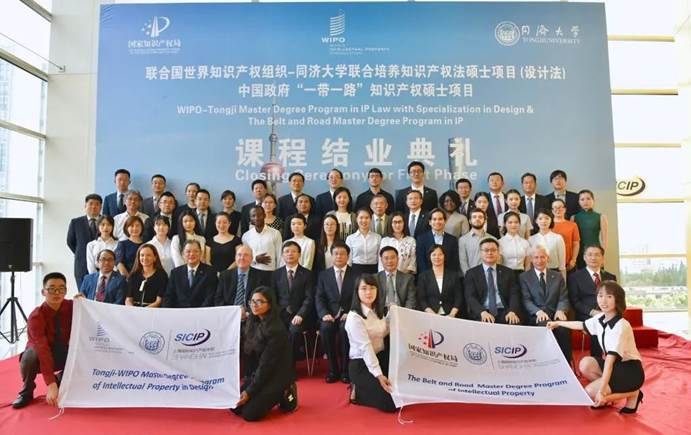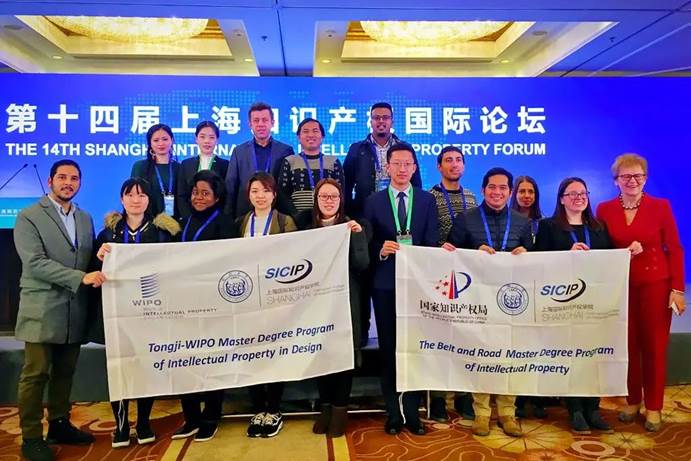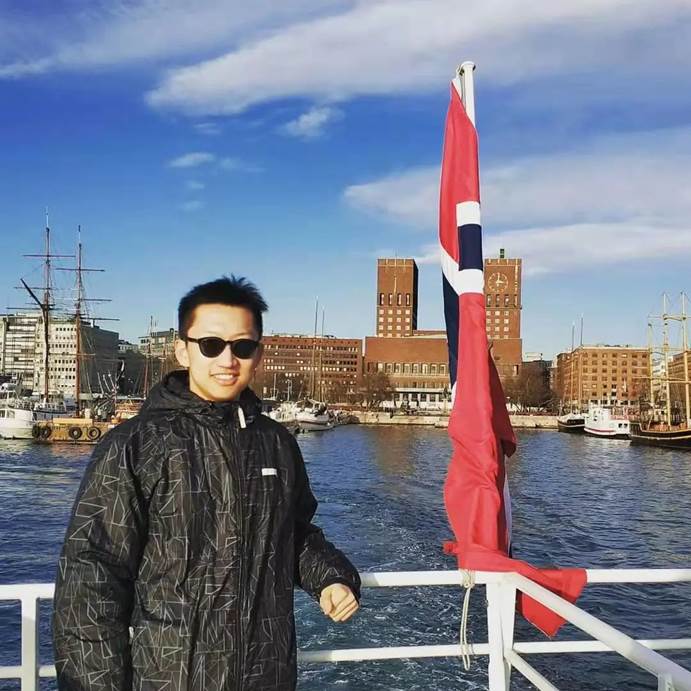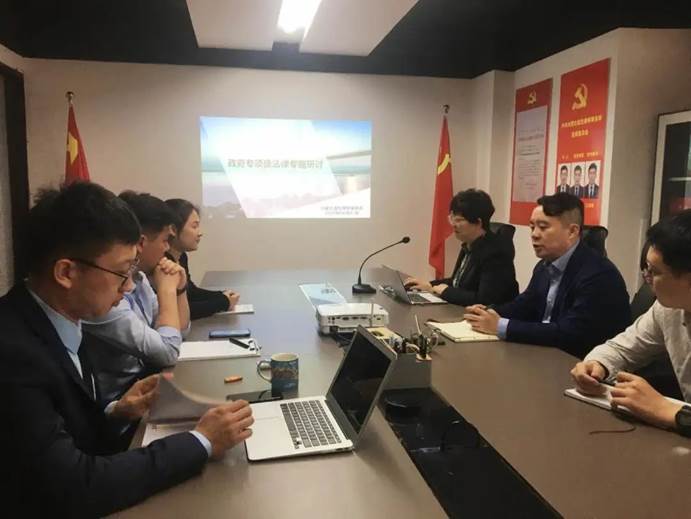

SONG Jian eventually chose to work in a law firm in his hometown in Inner Mongolia.
When his classmates first heard his decision, they did not understand: Why not work and stay in Shanghai? They think that as a class representative SONG Jian is excellent, reliable and enthusiastic. He is a graduate of the first UN World Intellectual Property Organization (WIPO) Master of Intellectual Property Law Program in the Shanghai International College of Intellectual Property (SICOIP), Tongji University. He also received his master’s degrees from Tongji University, University of Hanover and University of Oslo and won honors including that of outstanding graduate.

Owning such achievements, why did he still choose to return to his hometown?
SONG said that intellectual property expertise is very useful in Inner Mongolia. He wants be an advocate of the Mongolian Horse Spirit and realize his dream of becoming a lawyer in his hometown.
A student who excels in study on the first WIPO Master Program in SICOIP
SONG Jian came to Shanghai from Hohhot, Inner Mongolia, to participate in the Tongji University Summer School three years ago, with a yearning to become an intellectual property specialist from Tongji University.
The first time he walked onto the Siping Campus of Tongji University, he was attracted by its distinctive architecture. After listening to the introduction of more than 110 years’ history of Tongji people, its role in the development of the country, the connection with science and education, and the overall development of Shanghai, he was attracted to the culture and values of this century-old university.
SICOIP is one of the youngest colleges in Tongji University. In November, 2016, with the support of WIPO, National Intellectual Property Administration, PRC and the Shanghai Municipal Government, the College was formally established at Tongji University, dedicated to cultivating international high-end intellectual property talents. The vibrant development of intellectual property deeply affected SONG Jian. He says: From then on, my heart was tightly connected to Tongji University.
With his solid language and professional skills, SONG Jian became the first master student of the SICOIP. In September, 2017, he returned to Tongji and began an unforgettable period of studying.
September 2017 was also a key time for SICOIP, since the first WIPO Master's Program started then. WIPO and Tongji University jointly developed a master's degree in intellectual property. SONG Jian once again passed the entrance tests and successfully became a student of the first WIPO Master’s Program.
In the class, he absorbed knowledge like a sponge, benefitting from Chinese and foreign teachers and judges who taught classes together. While studying Chinese intellectual property laws, students learn international intellectual property treaties and laws and judicial practices from other countries. Young intellectual property talents, with a broad international vision and interdisciplinary background, are emerging from the program.
During his postgraduate study, SONG Jian was the class representative of his class, acting as a bridge between teachers and classmates. My classmates are from different countries, with different cultural backgrounds, so some have difficulty in understanding English pronunciation. It is a great challenge for me to be the class representative. SONG is modest about his efforts and achievements beyond his studies. He observed: with the encouragement and support of teachers and classmates, my work has been carried out smoothly, contributing to the whole class.

The WIPO Project Class also arranged a wealth of practical activities for students. SONG and his classmates participated in the Shanghai International Intellectual Property Forum and visited offices of the National Intellectual Property Administration, PRC and WIPO in Beijing. These practical activities provided them with more intuitive understanding of international intellectual property matters.
Winning Master Degrees from Tongji University, University of Hanover, and University of Oslo
In the second year of the graduate school, with the encouragement of his mentor, Professor SONG Xiaoting, SONG Jian applied to go to the University of Hannover and University of Oslo to study for a joint master's degree. Ms. SONG often told me to read thousands of books and travel thousands of miles. Going abroad to study is not only to learn knowledge, but also to enrich the experience of life.
Before leaving, SONG was a little nervous about studying abroad, being inexperienced, but soon adapted to the new environment. His essay about the obligations of the EU's online content sharing platform has been affirmed by foreign experts. The professor of the University of Oslo even awarded him an A grade. He successfully obtained a master's degree in information technology and intellectual property law from the University of Hanover and the University of Oslo.

Apart from studying, SONG Jian also traveled to 11 European countries with 11 students and even went to the Arctic Circle.
In August 2019, SONG returned to China. He both started to complete his master’s thesis of Tongji University and actively participated in recruitment activities and prepared to step into his job. In early 2020, the sudden epidemic outbreak suspended these arrangements. At that time, SONG was in Hohhot. He witnessed the feats of the post-90s and post-00s groups struggling on the front line to fight the epidemic. As part of the post-90s, he began to rethink his choice of employment. After deliberation, he decided to work in his hometown work where he is needed most.
Returning to Inner Mongolia does not mean that my professional intellectual property is useless. On the contrary, Inner Mongolia is in a critical period of industrial upgrading and is getting rid of the traditional ideas and practices of relying on the energy industry to develop the economy. The intellectual property profession has great potential in Inner Mongolia. The protection of intellectual property rights in Inner Mongolia is relatively backward compared to coastal areas, but its literary and artistic resources, traditional time-honored brands, local specialty products and other resources are relatively rich and need to be developed and protected. SONG Jian said.
Determined to promote the Mongolian Horse Spirit
After deciding to stay in his hometown to realize his dream of becoming a lawyer, SONG contacted the Chaolun Law Firm in Inner Mongolia and became an apprentice lawyer. He observed: This is a young law firm, so I had the opportunity to deal with various legal issues.
SONG and the law firm he works for have gained in experience together. After being an apprentice lawyer for 2 months, SONG added an extra title on his business card -Trademark Agent. He told the reporter that with the support of the director, he helped the law firm go through the trademark registration agency qualification filing procedures and started a new trademark agency business for the law firm.

In working, SONG felt that Tongji University not only taught him knowledge, but more importantly, taught him how to analyze and solve problems. Studying in the university can never cover all aspects of law. The legal norms are constantly being updated. Only by mastering legal research methods can we easily handle all kinds of cases.
The coaching lawyer praised SONG, remarking to his colleagues: SONG has embodied a very pragmatic 'Shanghai Regional Culture'. He is not too entangled in theory, but he pays attention to the rules reflected in the court's judgment. This is because in Tongji, teachers make extensive use of case analysis teaching methods on a daily basis, and this is imprinted in students’ minds.
The work in the law firm is full of challenges and no one day is exactly the same. SONG Jian writes completely different case stories on A4 sheets of paper every day. He said: I feel that I am not a worker, but an entrepreneur who is learning new knowledge each day. I hope to complete the transition from student to lawyer as soon as possible, so that I can quickly work independently.
During the NPC & CPPCC this year, SONG Jian accompanied the director of the law firm to some impoverished areas such as Wuchuan County, Qingshuihe County and Chayouqianqi in Inner Mongolia to participate in the recording of the News Observation program of Inner Mongolia Radio and TV Station. He conveyed the spirit of NPC & CPPCC to farmers and herdsmen and interpreted XI Jinping's important speech when participating in the deliberations of the Inner Mongolia delegation. He also preached the national poverty alleviation policy and answered the legal questions from farmers and herdsmen.
Returning to the vast grasslands of Inner Mongolia, exposed to the melodious Mongolian fold songs, and thinking of the coastline of the East China Sea, SONG Jian would still miss Shanghai and Tongji. Here he spent his youth, growing up and emerging into the world. However, he is convinced that returning home is a correct choice. As part of a wider stage, it is necessary for him to apply his new-found knowledge to develop his hometown.
I will keep in mind President XI's entrustment during the deliberations of the Inner Mongolia delegation at the Third Session of the 13th National People's Congress, and carry forward the 'Mongolian Horse Spirit', practice the concept of 'All for people' in work, and safeguard the legitimate interests of clients to promote the fairness and justice of the law. This is what the post-90s determined.






 0086-021-65983113
0086-021-65983113  sicip_intoff@tongji.edu.cn
sicip_intoff@tongji.edu.cn